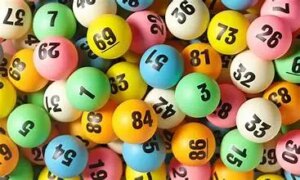Welcome to Extreme Investor Network, where we dive deep into the world of economics and finance to provide you with valuable insights and information. Today, we will be exploring the topic of predicting the lottery and the harsh reality of your chances of winning big.
Many people have wondered if it’s possible for a system like Socrates to predict the lottery numbers. We conducted tests on this idea about 30 years ago, and the results were certainly interesting. While there are always cycles in various aspects of life, the sheer number of variables in a lottery draw makes it nearly impossible to accurately predict the winning numbers.
In recent years, we have witnessed a surge in advertisements for record-breaking jackpot prizes in lotteries. However, it’s essential to understand that winning the lottery is not a strategic game you can easily crack. When you participate in a lottery, you are essentially betting against the government, and as they say, the house always wins.
Desperate for funds, governments have lured in participants with promises of larger jackpot prizes. But it’s important to note that a significant portion of your winnings will be deducted by the government. The federal government takes a mandatory cut of all jackpot winnings, pushing the winners into the top tax bracket. State governments also claim a portion of the jackpot, along with fees for public beneficiaries, retailer commissions, and administration costs.
Your odds of winning the Powerball lottery are about 1 in 292.2 million, while the chances of hitting the Mega Millions jackpot stand at 1 in 302.6 million. To put things into perspective, you are more likely to be struck by lightning, attacked by a shark, or even die from a bee sting than to win the lottery.
In addition to taxes on winnings, governments rake in substantial revenue from ticket sales. For instance, New York, a popular state for lotto enthusiasts, earned over $10.545 billion from lottery revenue in fiscal year 2023, with a considerable chunk allocated to the Lottery Aid Education fund.
While individual success in predicting lottery numbers remains rare, we did find some partial success with individual digits. Running cycles on each digit separately showed more promise than attempting to predict the entire set of numbers.
At Extreme Investor Network, we aim to provide you with a unique perspective on economic trends and financial markets. Stay tuned for more exclusive insights and analyses to help you make informed investment decisions. Remember, when it comes to the lottery, the odds are stacked against you, but with the right strategies, you can enhance your financial prospects in other ways.


